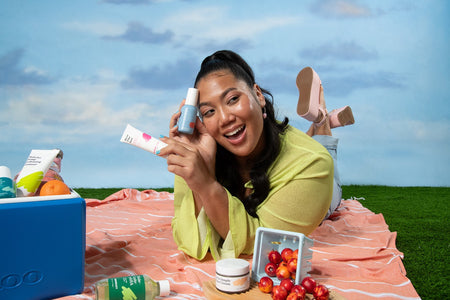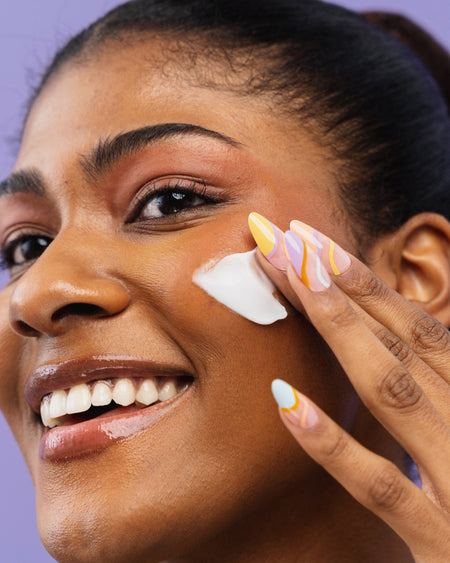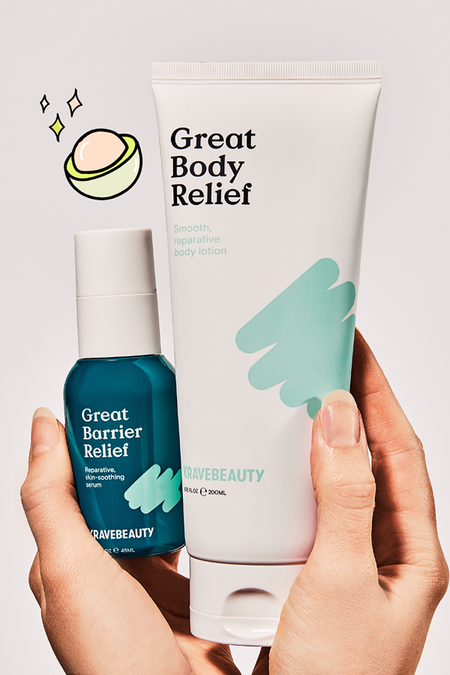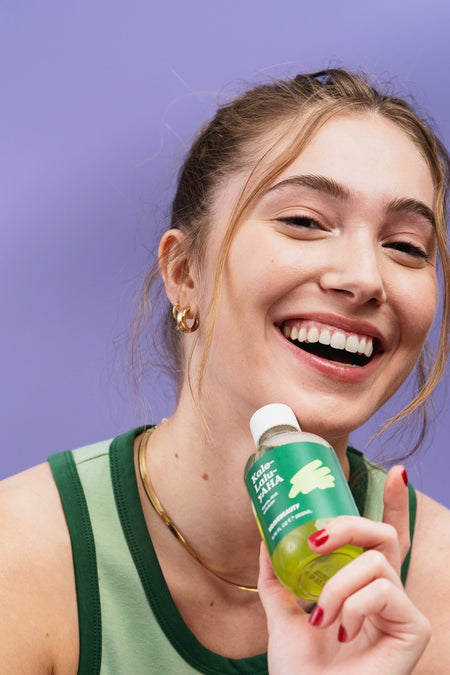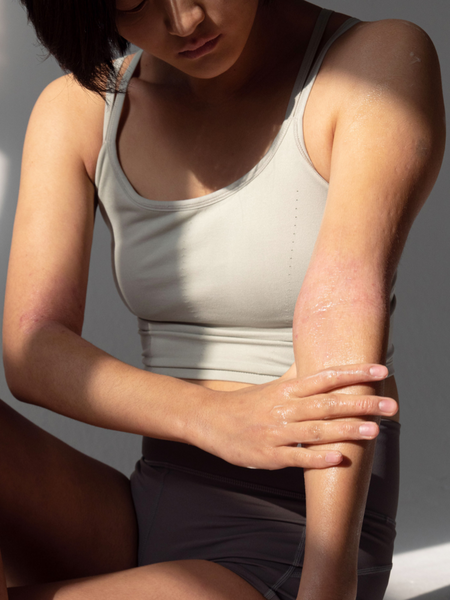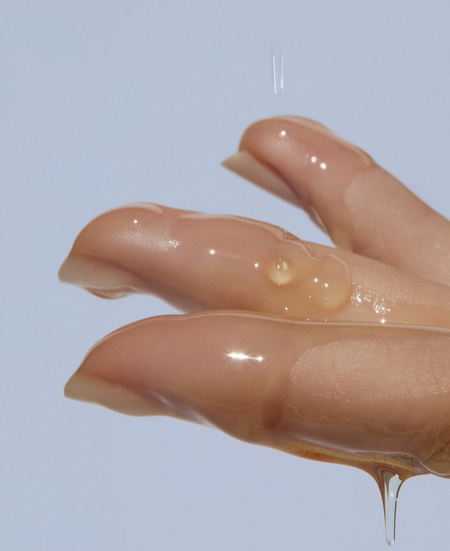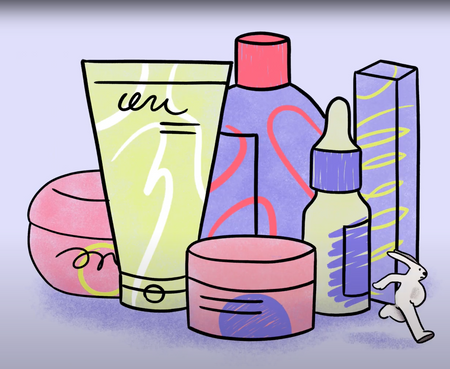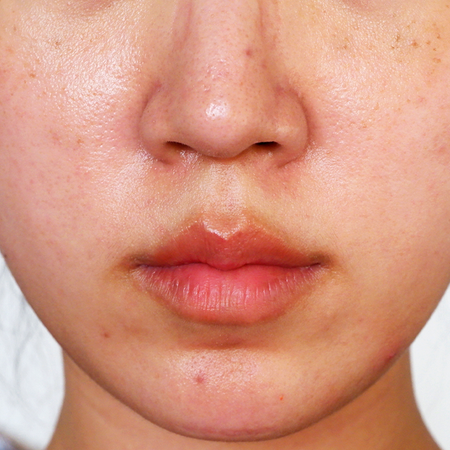Skin Myths: Fact or Fiction?

FICTION
Sunscreen protects you from skin cancer! There is often a misleading notion that people who use more sunscreen have higher rates of skin cancer, but that is simply not true. The reason is because people typically only put on sunscreen when they expect to be out in the sun (i.e. going to the beach or Disneyland), and that they almost never put on enough! To get the proper protection of the SPF printed on the label, you need to put on at least 1/4 teaspoon, just for your face! 😱 So next time you’re putting on sunscreen, use that methodology for your body and face, and don’t forget to reapply
2. Consuming dairy causes acne
FACT
There are tons of different hormones in dairy milk, and it has been shown that, these signals lead to an increased amount of insulin and other hormones in our body, resulting in an increase in sebum-producing cells, sebum, and inflammation, which becomes a perfect recipe for acne!
3. Collagen creams and supplements help with collagen levels in your skin.
FACT & FICTION
It is hard for collagen to be absorbed into the skin because it is large in size. Even when the collagen is broken into little pieces, our barrier functions to keep out most substances. Occasionally a few of those pieces will get absorbed into the skin, but there are no guarantees that our cells will make collagen out of those pieces.
New research does however show that you have a good chance of maintaining your collagen levels by taking dietary supplements of collagen peptides/hydrolyzed collagen. Since the building blocks are supplied to your cells directly from your blood at the correct ratios, it increases the chance that they will be used for building collagen. It is shown that taking collagen supplements reduces sun damage and improves skin elasticity.
4. Moisturizers make your skin oily
FICTION
The right moisturizer will NOT make your skin oily because it will make up for what your skin lacks. To add back hydration, go for a moisturizer with higher water content, such as a gel moisturizer; and to replenish your oils so that your skin doesn’t overcompensate, consider oils high in linoleic acid content (e.g. hemp seed, rosehip seed) or oils that are similar to sebum (i.e. jojoba oil).
5. Organic skincare is safer
FICTION
Don’t give in to the fear-mongering! Many synthetic chemicals used on our skin today have been tested for decades to see if there are any possible side-effects. If you have never had a bad reaction to it, there is no reason to distrust it now. Organic skincare often includes plant-derived extracts and ingredients which require a lot more preservatives and solvents which can actually have a higher chance of irritating your skin.
6. Makeup ages your skin
FACT & FICTION
Makeup itself doesn’t actually accelerate the process of aging, however, if you don’t remove your makeup properly, it can clog your pores and lead to inflammation. Inflammation can cause the protein in your skin to break down resulting in the appearance of aged skin.
You may also want to be wary of makeup that is too occlusive, your skin’s production of natural moisturizing factors (NMFs, the things that lock in your skin’s hydration) depends on its ability to breathe and react to its environmental conditions.
7. Your skin gets used to products
FICTION
Sometimes when we don’t see new improvements, we start to assume that our products have stopped working, but the reality is that there is a threshold of how much a product can help. After a while, your product starts working in maintenance mode but if you stop using the product, your condition will worsen again.
Some people think that this means your skin becomes “dependent” on the product, but remember that skincare is only one aspect of maintaining skin health and is not a “cure.” For truly healthy skin you must consider all contributing factors, including your physical and mental health, your skincare just nudges it in the right direction.
8. Oils oxidize on your skin
FACT & FICTION
Oils, especially unsaturated oils, naturally oxidize when exposed to environmental light or heat. The simple act of putting oil on your face does not immediately cause it to oxidize because they have a certain amount of stability to it, but when you do choose to use them, be sure to avoid the sun and polluted city air. A simple solution would be to use oils mostly at night!
9. You should avoid alcohols in skincare completely
FICTION
Alcohols serve an important function in skincare because not only are they essential in achieving the desired texture of your products, they also help increase skin penetration so that the active ingredients can absorb into the skin much more effectively.
This is why alcohols in skincare should be judged on a case by case basis. If you try a product with alcohol and your skin loves it, then there's no reason to avoid it; but if your skin feels dry and irritated after, it is possible that 1) you had a bad reaction to the alcohol itself or the active ingredient that it helped penetrate into your skin, OR 2) the concentration of alcohol in the product is really high, which can be very drying on your skin and can cause irritation. You can get a sense of how high the percentage of alcohol is by how soon it appears on the ingredient list. The closer to the top of the list, the higher the percentage, but don’t let its mere presence put you off!
10. Acid exfoliants can damage your skin barrier
FACT
It is possible to damage your skin barrier by using too many acid exfoliants. The function of alpha-hydroxy acids (AHAs) is to exfoliate the top layer of dead skin cells and reveal the new cells underneath. During this process, your skin is working hard to speed up its process of self-renewal and can be sensitive to any other changes. Therefore, until your skin gets used to it, using too many AHAs at the same time or using AHAs too frequently can increase the risk of damaging your skin barrier. If you’re new to acid exfoliation, start slow to give your skin a chance to acclimate. Don’t forget to moisturize and use sunscreen!
 Matcha Hemp Hydrating Cleanser
Matcha Hemp Hydrating Cleanser Oat So Simple Water Cream
Oat So Simple Water Cream Beet The Sun SPF 40 PA+++
Beet The Sun SPF 40 PA+++ Great Barrier Relief
Great Barrier Relief Kale-Lalu-yAHA
Kale-Lalu-yAHA

